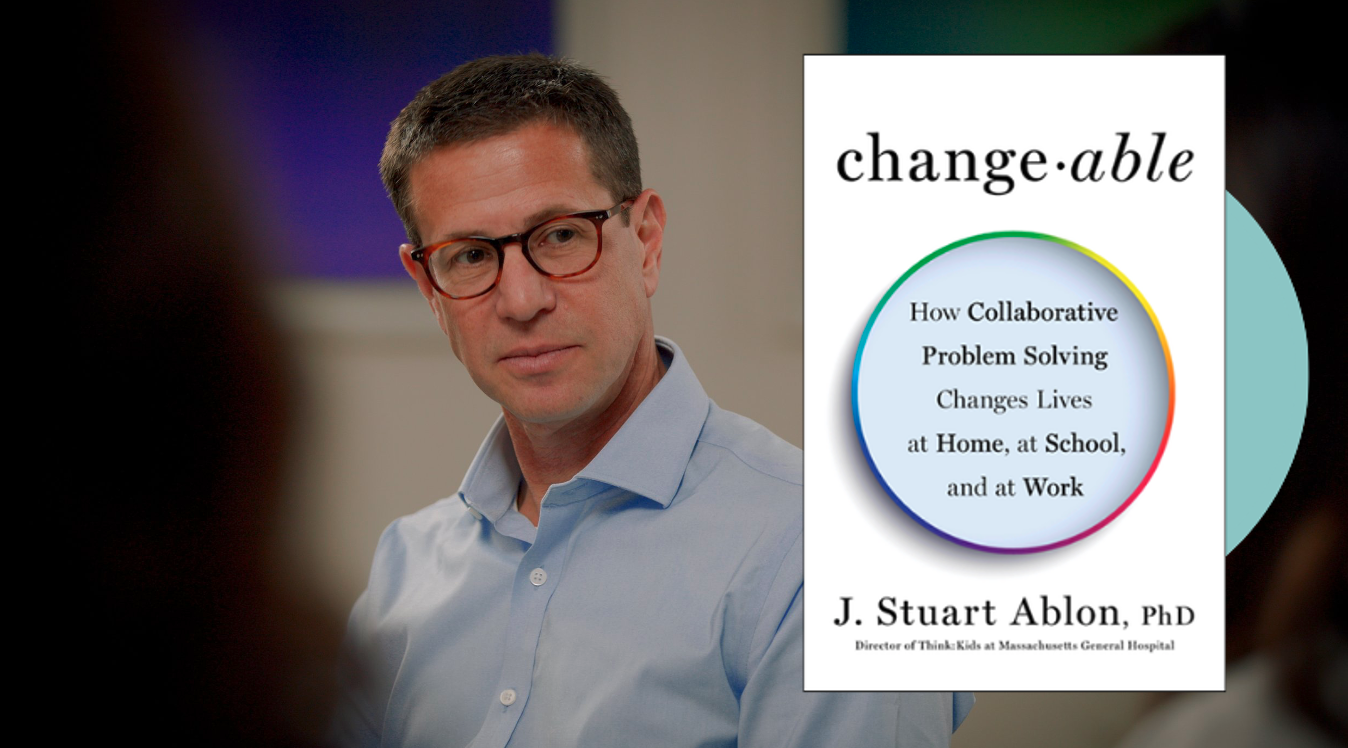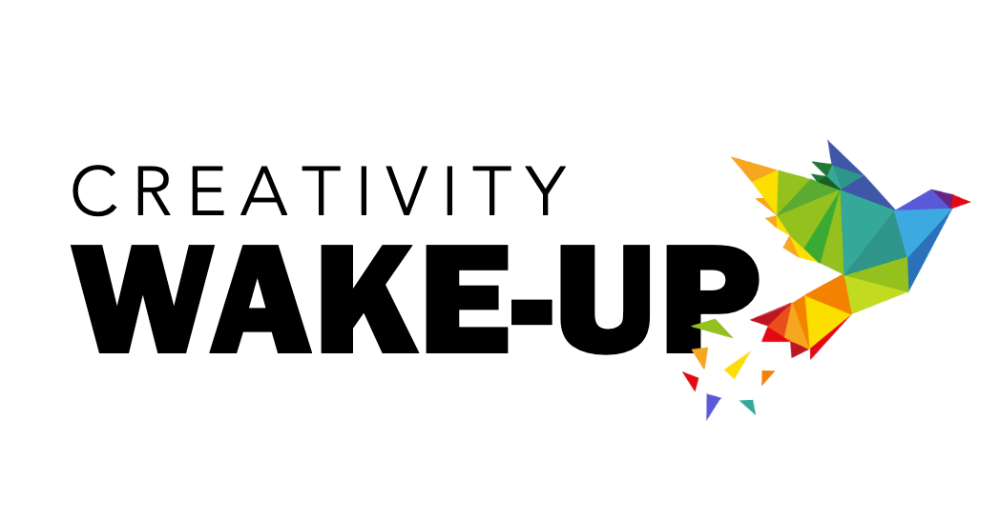Stop trying to fix people. Try this instead.

How creative thinking skills transform work and home life.
Author: Celia Falkenberg
We all have that person.
The colleague who drives you up the wall.
The partner who keeps shutting down.
The child who explodes, or implodes, when things don’t go their way.
And if we’re honest, sometimes we are that person.
We’ve been conditioned to respond to challenging behaviour with rewards, punishments and lectures. If they don’t behave? Give consequences. Withhold privileges. Get tougher. That’ll give them the willpower and motivation to do better.
But… what if everything we’ve been taught is dead wrong?
What if the key to helping people behave better—at work, at home, in life—isn’t about control or motivation? What if it’s about connection and a set of creative thinking skills?
I’ve been diving into the work of Dr Stuart Ablon, an award-winning psychologist, Harvard Medical School professor and author of the bestselling book Changeable: The Surprising Science Behind Helping Anyone Change. His work resonates deeply... not only with me personally, but with what we’re seeing in our clients’ businesses and lives at Creativity Wake-Up.
Dr Ablon’s research flips the script on behaviour change. His core insight?
“People do well if they can.”
Let that sink in.
Not “People do well if they want to.”
Not “People do well when you bribe or threaten them.”
Just: People do well if they can.
Which means, if someone isn’t doing well, something’s getting in their way. And it’s not laziness. It’s a skills gap.
What kind of skills? Dr Ablon’s decades of research point to creative thinking capacities like curiosity, perseverance, flexibility and collaborative problem solving.
So What’s Really Going On?
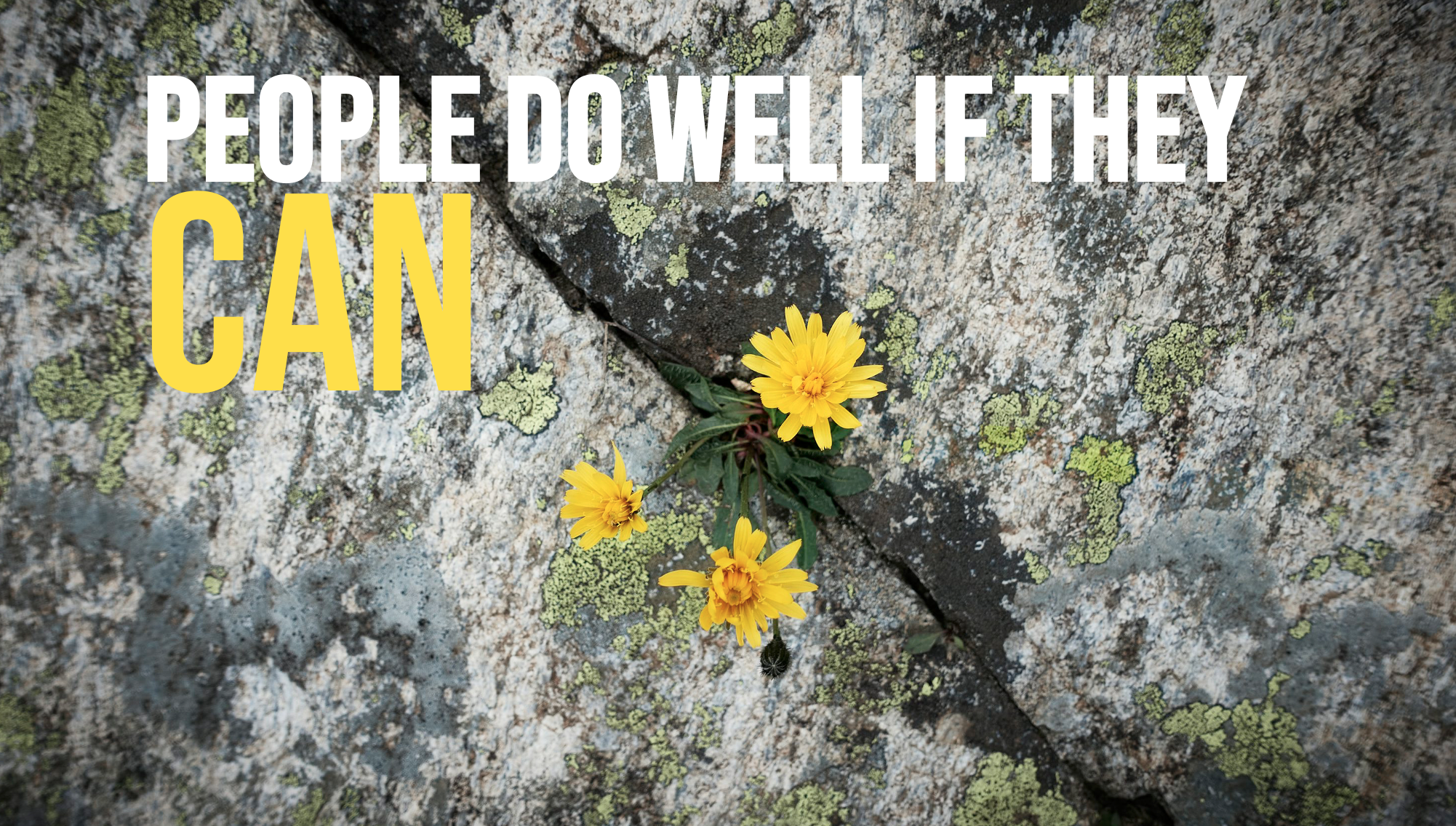
According to Ablon, decades of neuroscience show that people who struggle with behaviour lack five crucial skill sets:
- Language and communication – can they express what’s bothering them?
- Attention and working memory – can they focus and hold ideas in mind?
- Emotion and self-regulation – can they manage impulses and big feelings? Do they have grit? Can they persevere?
- Cognitive flexibility – can they adapt and think in shades of grey?
- Social thinking – can they read a room, take perspective and collaborate? Can they work with others to solve a problem?
Here’s the heart of the matter: these are learnable skills. But not through rewards, punishments or nagging. The only reliably effective way to help someone build these skills is through practically applying these skills in real world situations. You can't just learn about this in theory. Practically working through difficult situation using Collaborative Problem Solving (CPS) builds each one of these skills.
Why This Matters to You

Let’s start with work. Because I know many of you reading this are leaders, coaches, educators or team members in high-stakes environments.
How often do you feel stuck managing someone who just isn’t “getting it”? Maybe they’re underperforming. Maybe they’re passive-aggressive. Maybe they’re avoiding conflict, blowing deadlines or creating friction on the team.
Now picture approaching that person not with judgement, but with curiosity.
What if instead of asking, “Why won’t they just do the thing?”
You asked, “What might be getting in their way?”
That’s Collaborative Problem Solving (CPS) in action.
Now shift to home.
That same mindset can save your sanity as a parent, partner, or sibling. Instead of yelling at your child for leaving their shoes in the hallway again, or pushing your teenager to “just try harder” at school, you begin by assuming they would do better if they could.
And your job isn’t to fix them. It’s to understand them. And work with them.
The ABCs of Collaborative Problem Solving
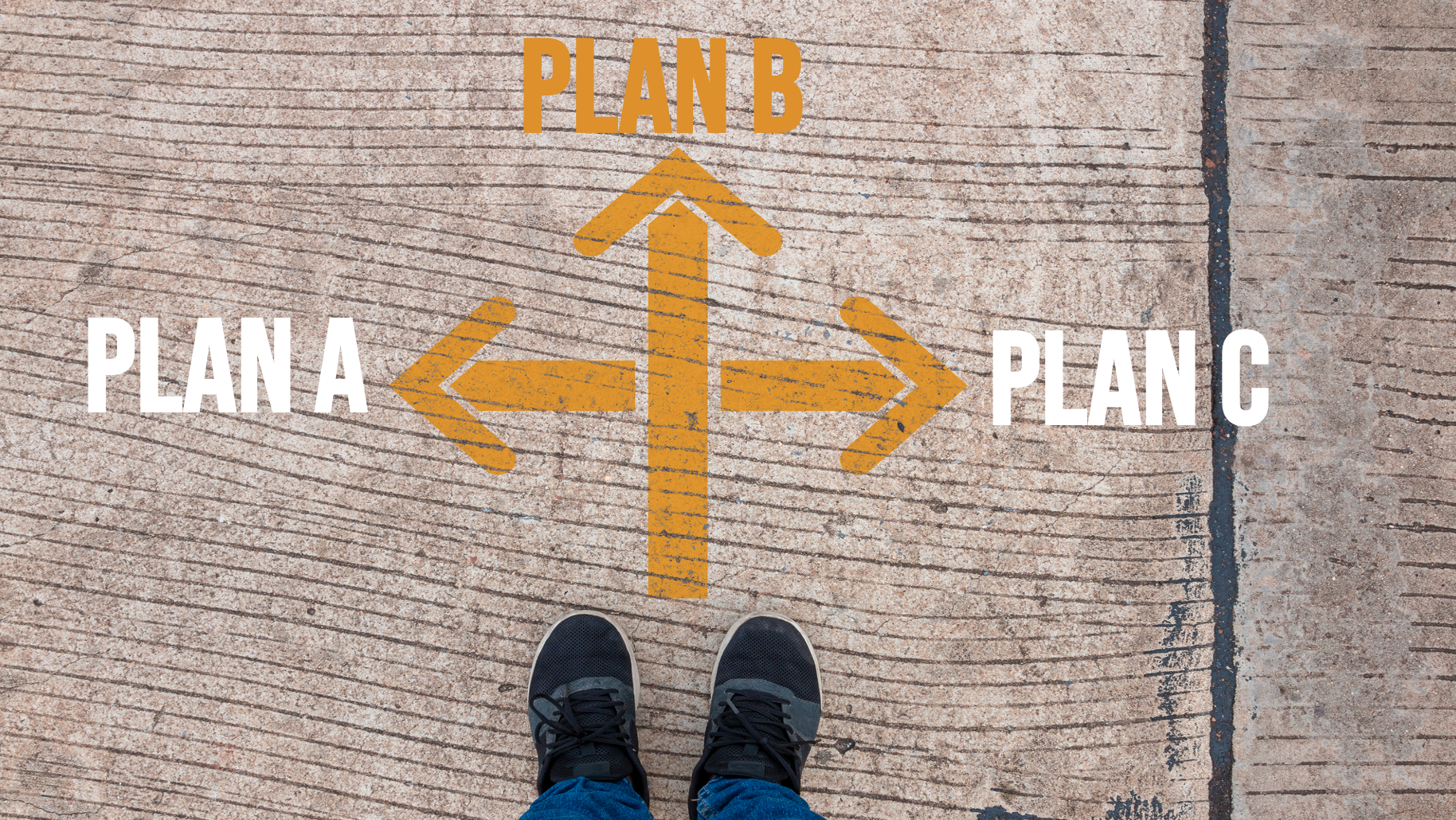
Dr. Ablon explains that when we’re dealing with challenging behaviour, we have three options for how to respond.
🟥 Plan A – Impose Your Will
The classic “Because I said so.” Whether it’s “Do it or else,” or doling out rewards to entice compliance, Plan A uses power and control. Sometimes it works in the short-term, but it doesn’t build trust, doesn’t teach skills and often breeds resentment.
🟨 Plan C – Drop the Expectation
This is not giving in. It’s a strategic move. Maybe now isn’t the right time. Maybe other issues take priority. In CPS, Plan C is about picking your battles, not avoiding responsibility. Used wisely, it can preserve relationships and de-escalate tension.
🟩 Plan B – Collaborate
Here’s the gold. Plan B is the heart of Collaborative Problem Solving. Here, you work together with the other person to understand both sides of the problem and come up with a solution that works for everyone. It builds trust, teaches skills and addresses the real issue.
Plan B is a game-changer because it’s not about forcing change. It’s about inviting collaboration. It’s how you build those executive function skills like problem-solving, empathy and flexibility in real time. And it’s how you become a more effective leader, parent or partner.
This Isn’t Easy
If you’re thinking, “That sounds amazing, but I’ve tried to talk to my boss/ teen/ partner and it goes nowhere.” You’re not alone in thinking this!
CPS is simple, but not easy. It requires emotional regulation from you. It asks you to pause your problem-solving reflex and lead with curiosity over control.
It means choosing long-term transformation over short-term compliance.
It's not a quick fix. It's a long process, but it also leads to long lasting results. Skillsets and mindsets that are invaluable over a life time.
What Plan B might look like in practice

There are many mindset and skillsets that come into play when implementing Plan B. It requires flexibility to adapt to any given situation. Behaviour takes time to change. Don't expect instant results! You will be developing your creative skillsets too! This plan is not linear. You are likely to have to keep circling back to Step 1. Here’s an outline of how Plan B might play out in the workplace:
Step 1: Empathise
Start with a neutral observation and genuinely listen to the staff member’s perspective. Reflect back what you hear until they say, “Yes, that’s right.” This step builds psychological safety. This is actually where most conversations go wrong because we skip it.
Step 2: Share Your Concern
Once they feel heard, it’s your turn. Clearly and calmly express your own concern. Avoid assumptions and blame. Use “I” statements and keep it concise.
Step 3: Invite Collaboration
Ask: “Could we put our heads together and find a solution that works for both of us?” Don’t pitch your solution yet. Invite theirs first. The best outcomes come from co-creation, not top-down decisions.
When you do Plan B well, it doesn’t just solve the problem. It builds trust, develops executive function skills (like flexibility, frustration tolerance and problem-solving), and strengthens your culture.
Real life stories
At Creativity Wake-Up, we’ve seen again and again how collaborative creative problem solving within teams leads to powerful outcomes. When people come together to work something out, it builds trust, shared purpose, and real buy-in.
I was recently asked to facilitate a workshop for a team grappling with serious internal conflict. One senior leader, in particular, had been creating a great deal of tension with a heavy-handed, top-down approach. But after a company-wide refresh in the skills of empathy, curiosity and Collaborative Problem Solving, the shift was remarkable. The team reconnected, with each other and with their shared goals. The dynamic transformed completely.
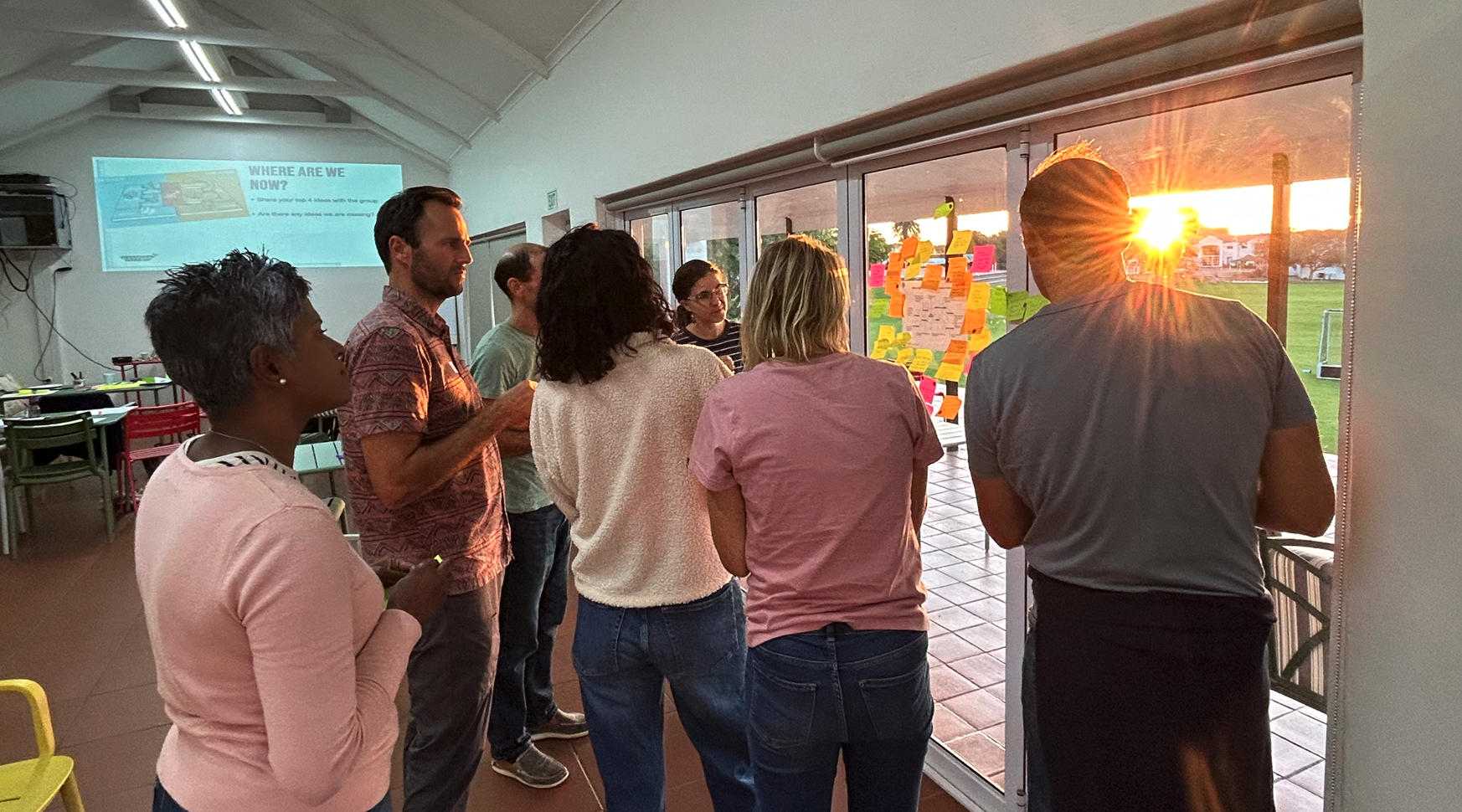
Companies often come to us looking for innovative solutions and a measurable return on investment. What surprises and delights them is that, alongside the ideas and results, their people walk away with something even more valuable: strengthened relationships, practical problem-solving skills and renewed motivation to do great wor, together. As this testimonial demonstrates,
“I have been a consultant and coach to EberVet group since 2018. The Creative Thinking programme has been a catalyst for transformative growth and change in the organisation. The teams are operating with more engagement and passion. I can’t think of one staff member who hasn’t been affected by the programme.
The biggest change has been seen at the clinic in the Strand. Before the Innovation Programme, the Strand Clinic was the least profitable clinic in the group. Its primary role was to support the EberVet outreach arm, which runs sterilisation and education projects in disadvantaged communities. Seven months after the Creative Thinking programme, the Strand Clinic has grown to one of our most profitable clinics. They have employed four new vets. By growing their paid client base, they can expand their outreach projects. They no longer consider themselves to be ‘the poor cousins’
In all my years of working as a business consultant, I have never seen a programme which had such a positive and profound impact on an organisation. We were anticipating the business growth following the programme. We did not anticipate the positive mindset shifts and the way the teams are operating in a more interconnect way.”
Ann Baret, Business Consultant and Coach to the EberVet Group
Three Things to Try Today
- Switch your lens.
The next time someone’s behaviour frustrates you, replace “Why are they doing this?” with “What might be getting in their way?” - Practice one empathy conversation.
Choose one person. Use the “Acknowledge and Empathise” step to only listen. Ask, reflect, reassure. That’s it. Don’t fix. - Share your concern—gently.
Next time you need to raise an issue, start with, “Can I share something I’m worried about?” instead of “You need to…”
Final Word
Dr. Ablon’s work reminds us of something simple and powerful:
People aren’t problems to be solved. They’re partners in problem-solving.
Whether you're leading a team, raising a child or just trying to be less reactive in your relationships, Collaborative Problem Solving is a game-changer.
If we can shift from punishment to partnership, from blame to curiosity, we don’t just change behaviour. We change lives.
Want more tools like this?
At Creativity Wake-Up, we help you rewire your thinking—for work and for life. Let’s get creative about solving the real problems together.
📚 Check out Changeable by Dr. Stuart Ablon
🎧 Listen to the full interview with Mel Robbins and Dr. Ablon
💌 Share this with a friend, colleague, or parent who needs it today
